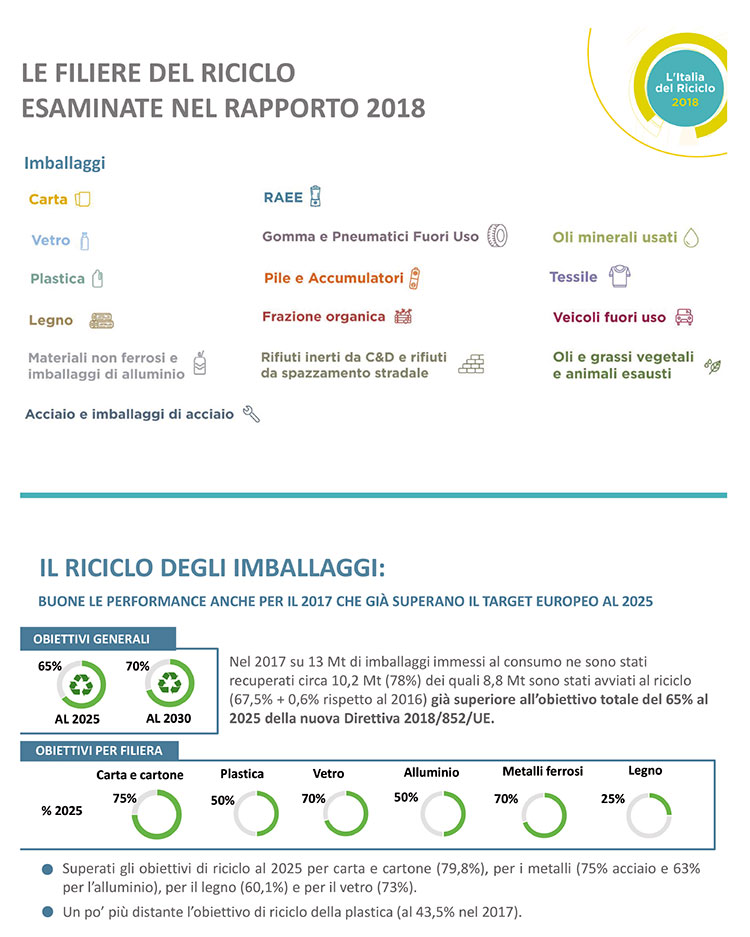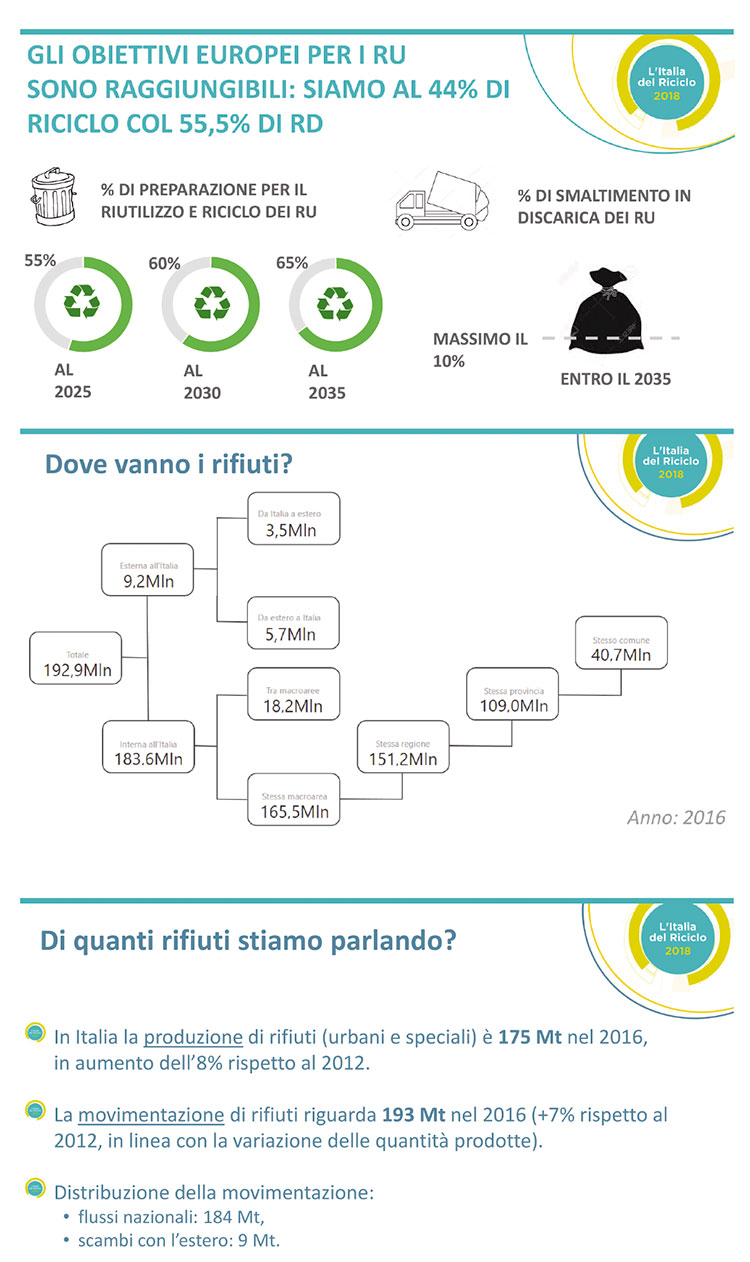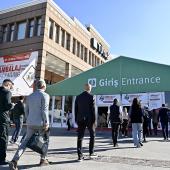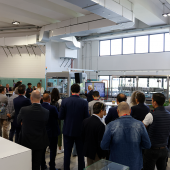Italy of Recycling 2018
Waste recycling is confirmed as a true Italian excellence and even in 2017 it shows growth in almost all sectors. The Report by the Foundation for Sustainable Development and by FISE Unicircular.

The new European Directives on the Circular Economy in the transposition phase introduce new and more advanced waste recycling targets that represent a positive opportunity for the growth of the sector, but the delays and the inadequate ways in dealing with the regulatory issue of the End of Waste, after a ruling by the Council of State, concerns the sector and can hinder its development.
These are the main features that emerged during the presentation of the annual study “The Italy of Recycling”, the Report promoted and implemented by the Foundation for Sustainable Development and by FISE UNICIRCULAR (Circular Economy Business Union), December 19, 2018, in Rome.
The Report, made with the active participation of the various recycling chains, provides an updated overall picture on the recycling of waste in Italy and identifies the European and international dynamics of the markets for recycled materials and trends in progress, through the detailed analysis of the national and international economic contex and reconstructs, through a specific survey, an analysis of the dimensions and of the qualitative and quantitative characteristics of the handling of waste regarding Italy.

Highlights on the individual recycling chains
• Segregated collection also increased in 2017, which reached 55.5% (+ 3% compared to 2016), and the recycling of urban waste, reached 44% (+ 2% compared to 2016).
• The recycling of packaging waste confirmed its growth (8.8 million tonnes in 2017, + 3.7% vs. 2016), reaching 67.5% on consumer input, exceeding the 65% that the new directive indicates by 2025.
• The recycling of individual packaging waste chains is also growing: paper (+ 3.6%), plastic (+ 5.1%), glass (+ 4.8%), wood (+ 3.4%), steel (+ 0.3%).
• Segregated collection of organic waste in 2017 increased by 3.2% and that of waste from electrical and electronic equipment (WEEE) is up 5%.
• The recycling rate of used mineral oils has increased, reaching 45% of that placed on the market for consumption and the collection of used vegetable oil has also increased, reaching 70 thousand tons (+ 8% vs 2016).
• The recycling of construction and demolition waste has also increased, with a recovery rate of 76%.

• Instead, there are decreases in four sectors: the recovery of end-of-life vehicles fell by 3% while the recycling of batteries and accumulators fell by 1%, the quantity of recycled aluminum packaging also decreased due to the increase in the use of scrap packaging as secondary raw materials and of the significant increase in End of Waste packaging exports. Also worthy of note is the 9% drop in the recycling of end-of-life tires, which also signals the delay in the publication of the End of Waste decree, although collection rose by 6% vs. 2016.
Import and export summarised
In 2016 (latest data available) import and export flows were seen to be contracted with respect to the previous survey (2012), respectively by 2% and 13%. In Italy, 5.7 million tons of waste entered, in particular ferrous metals used by the manufacturing industry and 3.5 million tons of waste were exported, mainly hazardous waste for which there are evidently no treatment plants in Italy, in the case of recoverable waste (which in any case represents a percentage not higher than 10%), for which there are no outlets for secondary materials.
It should be noted that the survey registers only the movements of materials classified as waste, not including materials that are not waste (raw materials or products derived from waste).
|
Recycling in Italy is at good levels and continues to grow, but ... As stated by Edo Ronchi, President of the Foundation for Sustainable Development «the adoption of the new package of European Directives for the circular economy must be implemented with the utmost care, involving the stakeholders, so that it be a tool to take further steps, avoiding regulatory errors that instead could cause difficulties and setbacks. Crisis situations (from the fires of some plants to shortages and inefficiencies in management) that still involve significant realities, starting from Rome, can be faced by taking advantage of the good experiences now numerous in Italy. To avoid only seeing the falling tree and not the growing forest... the Italy of Recycling 2018, with data relating to all the significant recycling chains, renders the image of a dynamic sector that generates good results, both environmental and economic». |



















